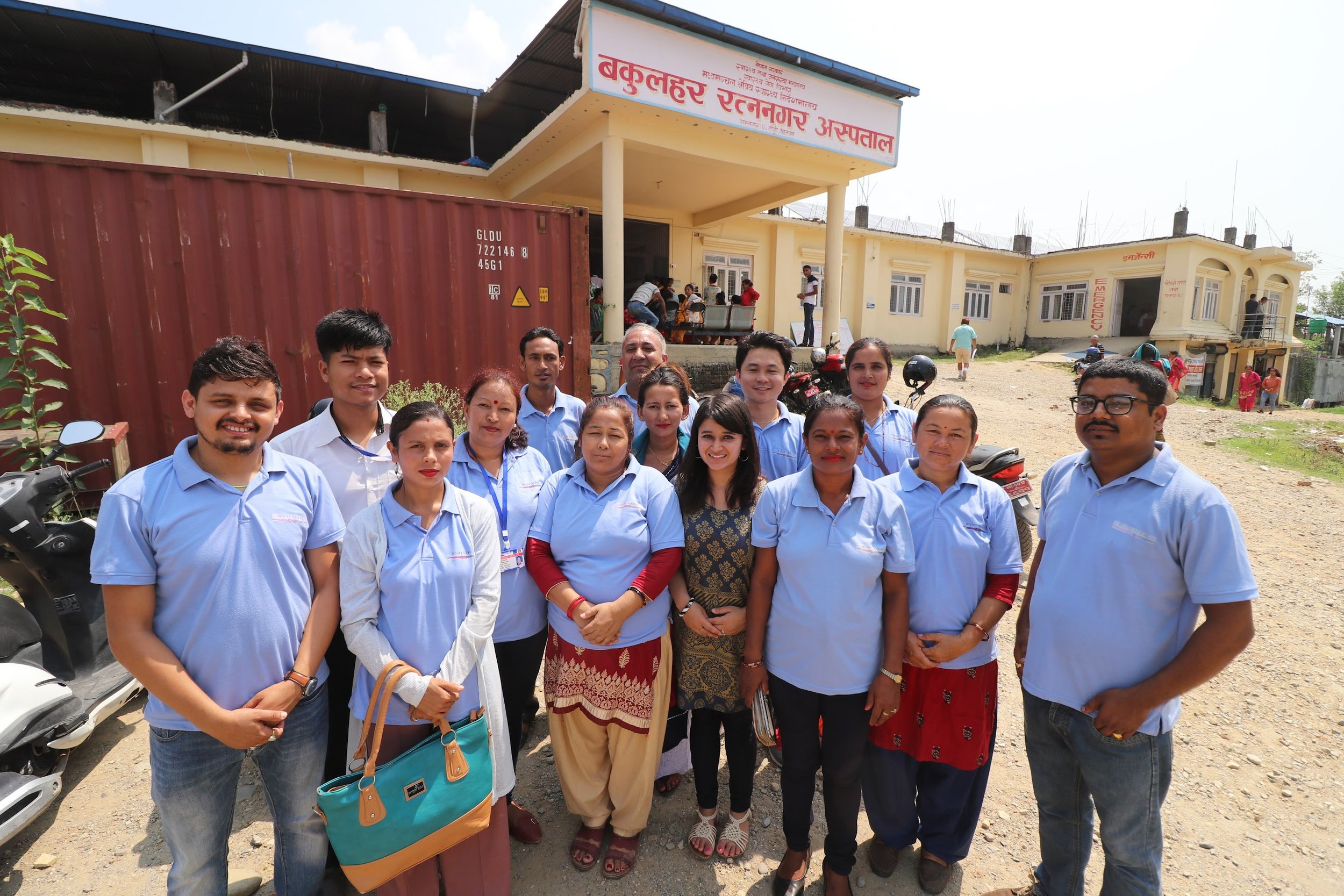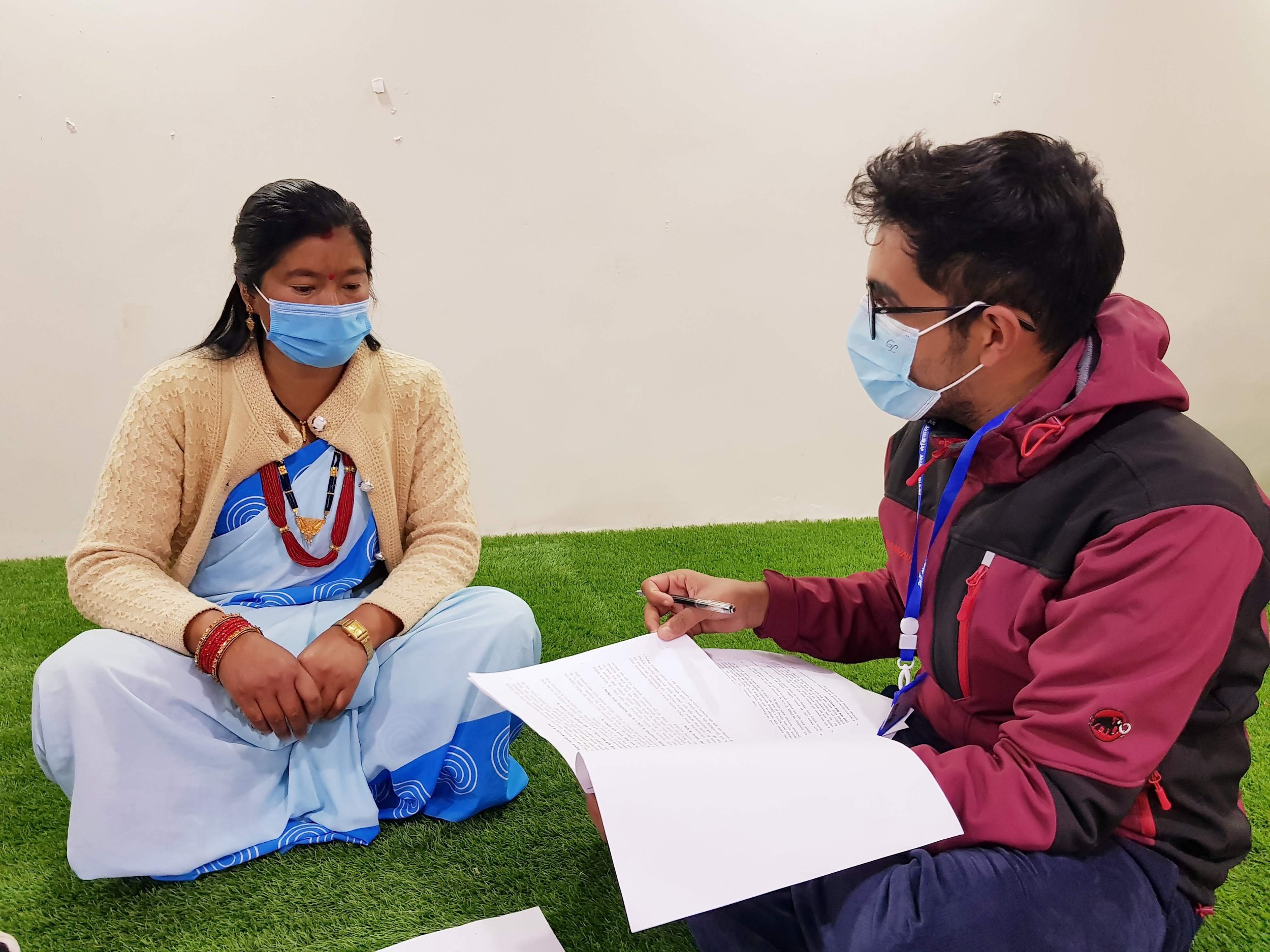2022 Birat Medical Trust Report
In 2022 the Birat Nepal Medical Trust (BNMT) continued to develop both local and national responses to tuberculosis, taking an integrated approach of how the impacts of TB have interacted with the COVID-19 pandemic. The outcomes of the Birat Nepal Medical Trust have been to provide support to those suffering from tuberculosis as well as facilitating critically needed research on TB in a highly endemic, low income country.
The COVID-19 pandemic reversed the worldwide progress to end TB, with global deaths increasing following a decade of slow but steady decline. Because TB is a curable disease if diagnosis is fast, lockdowns and redirection of resources resulted in tragic outcomes for many of those suffering with the disease. If, as happened often during the pandemic, the diagnosis is delayed, the severity of the disease progresses and not only increases suffering, but makes treatment and care more difficult.
BMNT Research Staff outside a medical centre
As a result, it has taken time for the organisation to respond to the near total collapse of TB services which resulted from emergency redirection of funds and healthcare workers towards COVID-19. The Farrar Foundation Fellow Ms Kritika Dixit has continued her work, designing the ‘TB READY’ project based on the research carried out by her and Rajan Poudel, another Farrar Foundation Fellow. This included conducting a series of interviews with people diagnosed with and treated for TB during the pandemic, as well as interviewing health care providers.
An interview by Farrar Foundation fellow Rajan Poudel gathering knowledge on the experience and effects of Tuberculosis
Interviews from those suffering from the impacts of TB and the pandemic included a 19 year old, who was diagnosed with drug resistant tuberculosis during the COVID-19 crisis. After diagnosis, she was forced to give up her education because her treatment required regular injections of antibiotics which could only be accessed from a healthcare centre which was only available during school hours. Her family suffered financial difficulties as a result. Tragically her case is all too common in Nepal and many countries around the world and emphasised the need for better, integrated TB, social support for those with TB and their families. It also underlines the need for research to provide better diagnostics, treatment and if possible preventative vaccines.
This integrated approach showed a dramatic widening in the pre-existing gaps in problems in healthcare availability, access, and delivery as a result of theCOVID-19 pandemic. Key areas of concern included increased stigma surrounding the disease, abnormally high transportation costs, enormous out of pocket expenses, an over reliance on over the counter drugs for symptomatic treatment, and further exacerbation of the poverty trap for some individuals and their families.
Farrar Foundation fellow Kritika Dixit carrying out a TB research interview
From healthcare providers perspective, they invariably received “no formal training” to perform differential diagnoses and manage people with TB during COVID-19, as well as being redirected to manage COVID. There was little guidance to help inform policy makers about the critical need to protect service delivery and care for TB and patients with other conditions. These findings supported national TB program authorities to design, restore, and strengthen activities that improve people centred care and improve support to our healthcare workers, including the ‘TB Ready’ project.
One key finding was the need to support young scientists in TB research. Raghu Dhital, Executive Director of the Birat Nepal Medical Trust identified a ‘chicken and egg’ scenario, where without a track record of funding as a lead investigator, researchers struggle to receive funding, and without funding they are unable to establish this track record.
The Farrar Foundation Fellowships have allowed the development of careers of young scientists from countries like Nepal and provide opportunities for them to realise their potential. This has allowed researchers to present their findings at both national and international conferences, informing the national TB effort.




